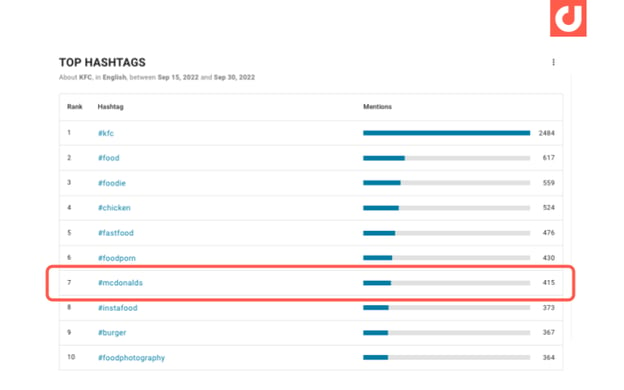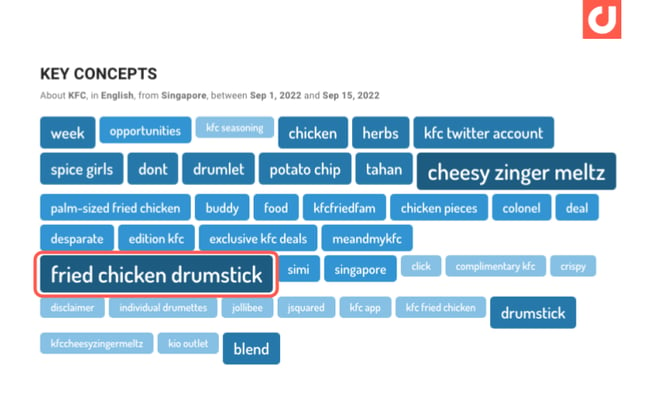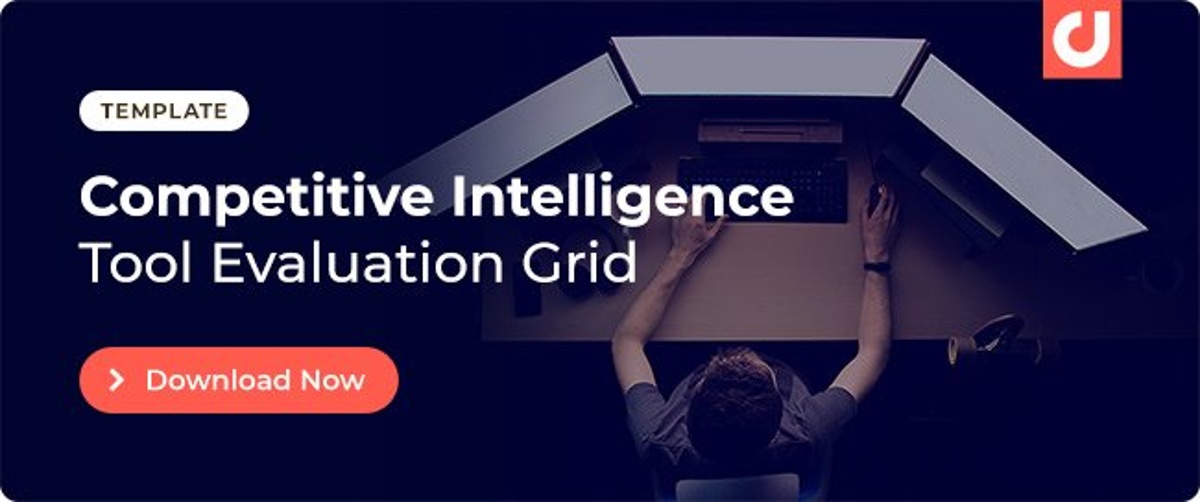How to Do Online Reputation Management (ORM)?
Almost all consumers now read online reviews. 98% of them read some at least "once in a while", while 77% read them "frequently" or "always".1 How can you always keep an eye on public feedback and social media mentions to monitor your brand reputation?
Whether it's good or bad feedback, brand marketers rely heavily on social media today to understand how their brand is perceived. Monitoring social conversations is a start, but it's also important to keep an eye on the discussions of key opinion leaders in their industry.In this blog, we'll list several ways to help marketers assess their brand reputation risks through ORM tools such as social media listening.
Analyze the Business Environment on Social Media
Knowing how to manage your online reputation has an effect that could increase profits in the long run. A positive brand reputation effectively means public trust and customer loyalty are high in the marketplace, which can be strong attributions to a higher bottom line and greater market value.
That said, if you have ever wondered how to do online reputation management or integrate brand reputation into your business strategy, analyzing the business environment on social media is the starting line.
While it is often essential to first understand your company's macro environment, social media is now one of the most fundamental areas to monitor. A majority of your customers and prospects are directly impacted daily by news found on social media.
Online, you wouldn't be surprised to find conversations about your work environment—rules, politics, new technologies, or any other rather private or confidential aspect—turned public on social media.
Analyze the Evolution of Public Sentiment at Different Stages of Your Campaign
All marketers agree that measuring and reporting the ‘Return On Investment (ROI) of a branded campaign is one of the most important considerations in understanding their success and adjusting efforts to maximize impact. From here, we will now focus on how to do online reputation management for a targeted campaign.
Tracking the evolution of social mentions related to your campaign can be a good indicator of performance measurement. You should track these mentions before, during, and also after the campaign. The more mentions and posts from users, the greater the likelihood that your brand will receive a boost in buzz and visibility. It is therefore essential for marketers to get real-time information to make informed decisions about optimizing their campaigns.
In the example above, you can monitor conversations regarding your brand over the desired time period to understand peaks and valleys, especially before a major event, such as the release date of the new Apple iPhone 14.
I promised myself not to buy new phone this year but the purple iphone 14 is so tempting la 😭😍
— arifin ipin (@arifinipinnn) September 8, 2022
Tracking the most anticipated consumer conversations has many benefits. In particular, it will give your marketing and PR teams insights into how they can prepare media kits and teasers in preparation for the official campaign launch. For instance, if the purple iPhone generates the most impressions, it is certainly the color to display the most in the next advertisements.
Prevent Potential Crises
With 93% of customers reading online reviews before purchasing a product, brands need to leverage social listening tools that help them quickly discover what customers are saying about their brand, products, or services. As you can imagine, if you have a bad reputation, the reviews about your products or services will not praise your brand and the customers who read these remarks will tend to turn tail to a competitor.
So how can you avoid this chaos? You have to keep an eye on what's happening on the web. At all times. 👀
To help you, ORM tools involving social listening ensure that your brand maintains positive receptivity and allows you to avoid unanticipated events and, therefore, potential crises.
Identify Key Issues
🚨 Beware, while a positive brand reputation effectively increases public trust and customer loyalty in the marketplace, the reverse is also true. At any time, if your brand is the victim of "bad buzz" on social networks or is implicated through a controversial topic, the negative reputation generated can have a detrimental impact on your results.
You must be aware of consumer insights: why, what, when, and how they talk about your services or products. You need to understand their behaviors and desires to meet their needs. Make it a good habit to monitor popular hashtags or keywords around your brand regularly. They will give you an idea to assess your brand’s health.
Consider the example above. Under the top hashtags about KFC, at first glance, the brand shouldn't have to worry about what consumers are sharing online about its services or products. However, where KFC could be more careful is around its competitors. It would also be necessary to keep an eye on their mentions.
Looking at some of the word groups, especially the one "fried chicken drumstick", we can notice that there is someone who posted a picture of his meal on Facebook. What seemed abnormal to him was the size of his chicken leg. Netizens are questioning, and a debate ensued about whether the piece of meal in the picture is a drumette or a drumstick. However, KFC does not serve drumettes in its offerings. That's why people online were asking themselves about the origins of their KFC meals.
S'pore man orders KFC, gets palm-sized fried chicken drumstick that looks like drumlet https://t.co/nS4PwF2sY1 pic.twitter.com/xromQT0tVe
— Mothership.sg (@MothershipSG) September 9, 2022
Whatever the origin or scope of the debate, when there is one that casts doubt about your company, don't hesitate to speak up. Without an online reputation management tool that uses social listening, you risk missing the hot points of the moment and any looming threads of discussion. Netizens will spread their theories until the brand expresses itself on the subject.
What About Converting Detractors into Promoters?
Well, you might think that it’s not worth getting into that trouble, but, it is indeed possible! So how to manage your online reputation by leveraging netizens who complain about your services or products as a strategic opportunity?
If detractors get noticed, it is often for a reason. Perhaps at some point in their customer journey, they had an unsatisfactory experience with your brand. So, in order to get them back into your customer journey, you need to rebuild trust with these profiles.
If you contact them and solve their problem the right way, it is possible to make them your biggest brand advocates, as their voices are often powerful in their community. 💪
The good news, fully-equipped social listening service providers like Digimind Social easily integrate with leading CRM platforms like Hubspot and Salesforce. So, linking detractors to your CRM tool will allow you to follow up, calm consumer frustrations in a timely manner, and, most importantly, humanize the way in which your brand interacts with your customers.
Never forget that it's the voice of the customer that matters. That's why it's only when brands do their due diligence to resolve issues that a process of reciprocity and redeemed value occurs, ultimately turning detractors into promoters. Keep on monitoring with ORM tools; you can do it! 🥇
Now you know the ways to explore a social listening tool that will help you in maximizing your online reputation management. Remember that you should analyze your company's environment on social networks, analyze your campaign from start to finish, and then keep an eye on your mentions to prevent potential crises.
As we explained, the best way to do online reputation management is to use a social listening platform. If you don't know which platform to start with, check out this article which presents 5 social listening tools every marketer needs to keep their eyes on.
Bonus: Download our CI Tool Evaluation Grid Template to identify key differentiating factors and questions to ask your potential market and competitive intelligence partner.
Written by Léa BOUTRON
Léa is a French native with a double technological and managerial background who, in addition to being passionate about new technologies, loves working in an international environment. That's why, after professional experiences in the Netherlands or Spain, she joined Digimind Singapore to work on the APAC market.



